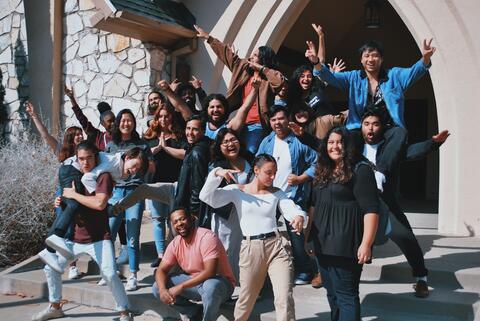

FRC takes an empowerment approach to risk. By increasing awareness, intentionality, knowledge, translation into adaptive prevention strategies, and resources for action, risk can lead to resilience (restoring previous functional levels) and thriving (exceeding previous levels and optimizing outcomes). We aim to “move the needle” from risk into resilience and ultimately thriving experiences and outcomes for families, children, youth, and communities.
Related projects
- STRONG Kids 2: A Cells to Society Approach to Nutrition
- Understanding Nutritional Challenges of People Who Have Experienced Cancer
- CACFP Food Program and Family Child Care Study
- Diet and Adiposity as Potential Effect Modifiers in the Relationship Between the Oxidative Potential of Particulate Matter and Inflammation in Children
- Optimizing a Mindful Intervention for Urban Minority Youth via Stress Physiology
- COVID-19 Thorns & Silver Linings for Mental Health & Vaccine Uptake: A Mixed-Method Study of Role Reversal, Overload, Stress, and Resilience
- Indoor Air, Diet Quality, and Child Health (more information will be forthcoming)
- Environmental Risks in the Context of Family Child Care (more information will be forthcoming)
- Building the Next Generation of Engaged Researchers: Utilizing Youth Participatory Action Research to Engage Teens in Community Policy Change (more information will be forthcoming)
- JUS Media? Programme: Food-Focused Media Literacy for Jamaican Families
- Abriendo Caminos: Clearing the Path to Hispanic Health
- Children's Environmental Health Center's Community Outreach and Translation Core
- Fathers and Family Mealtimes: Identifying Men's Roles in Increasing Children's Healthy Eating Habits
- Hunger-Free Summer Hub Project Program
- Mealtime Strategies for Picky Eating Behaviors of Children in Center- and Home-Based Daycare Settings
- Microbial Interrelationships Between Mothers and Infants by Mode of Feeding
- Protective Parents Project
- An Evaluation of the Backpack Program in East Central Illinois
- Assessing Food Security in Decatur
- Evaluating the Effectiveness of an Online Parenting System for High-Risk Parents
- Families Eating and Talking Together
- FOODTIME: Focusing on Obesity
- Out of School and Summer Feeding Program Evaluation
- Project Dine
Title
Risk, Resilience, and Thriving
We take an empowerment approach to risk. Risk exposure and risk-taking may be unintentional, impulsive, actively sought, and developmentally appropriate. By increasing awareness, intentionality, knowledge, and translation into adaptive prevention strategies, and using resources for action, risk can lead to resilience (restoring previous functional levels) and thriving (exceeding previous levels and optimizing outcomes).
We aim to move the needle from risk into resilience and, ultimately, thriving experiences and outcomes for families, children, youth, and communities. Broadly, we study risk-factor exposure and risk-taking behaviors. Risk factors include social determinants of health, health disparities, physical environment exposures, and biosocial vulnerabilities. Risk-taking behaviors in the domains of sexual behaviors, substance use, violence, and delinquency are growth areas in the FRC research portfolio. Risk is not a four-letter bad word. Risk-taking is developmentally appropriate and facilitates skills development, confidence, and the ability to learn how to fail.